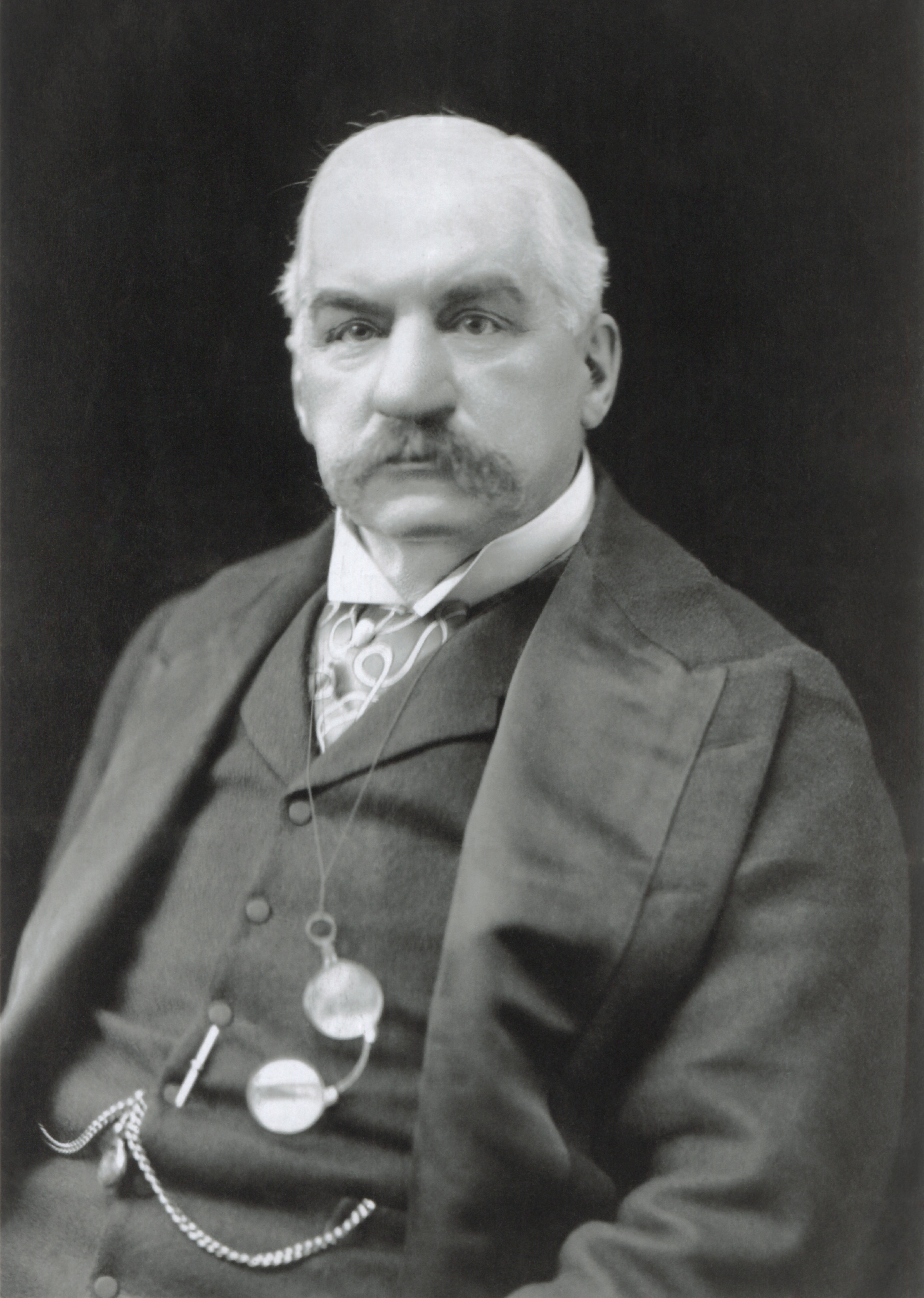Morgan, J. P. (1837-1913), was an American banker who became one of the greatest financiers in the United States. He organized several major corporations and used his enormous wealth and power to prevent a national financial crisis on at least two occasions.

John Pierpont Morgan was born in Hartford, Connecticut, on April 17, 1837. His father was Junius Spencer Morgan, also a banker. John attended the University of Gottingen in Germany in 1856 and 1857. Later in 1857, he began working at the New York office of the London banking firm of George Peabody and Company.
In 1862, Morgan established his own firm, J. Pierpont Morgan & Company. The firm operated as Dabney, Morgan & Company from 1864 to 1871. In 1871, Morgan formed a partnership with the Drexel family of Philadelphia to create Drexel, Morgan & Company. Morgan reorganized the firm under the name of J. P. Morgan & Company in 1895.
Morgan’s firm became a leader in financing American business and in marketing bond issues of the U.S. government. It also sold bonds of the British government. In 1901, Morgan helped organize the United States Steel Corporation, then the largest corporation in the world. He also played a key role in financing International Harvester, American Telephone and Telegraph, General Electric, and other major companies. Morgan also helped reorganize many railroads, including the New York Central, the Northern Pacific, the Philadelphia and Reading, and the Baltimore and Ohio.
In 1895, Morgan’s firm sold all of a $62-million government bond issue. The sale ended a gold shortage in the U.S. Treasury. In 1907, Morgan led a joint effort of business leaders and the U.S. government to resolve a national financial panic.
In 1904, the Supreme Court of the United States dissolved the Northern Securities Company, which was organized by Morgan and other financiers to control key railroads in the West. The court ruled that the company reduced competition in violation of the Sherman Antitrust Act. In 1912, a congressional committee investigated Morgan because of his financial power, but the committee found nothing dishonorable.
Morgan made many gifts to education, charity, and the arts. He founded the Lying-in Hospital in New York City and gave a large sum to the Harvard Medical School. Morgan was an ardent Episcopalian and helped fund the Cathedral of St. John the Divine in New York City. Morgan also was a famous yachtsman who financed several winners of the America’s Cup yacht race.
Morgan died in Rome on March 31, 1913. After his death, some of his famous art collections went to the Metropolitan Museum of Art in New York City, which he had helped found.
See also Morgan, J. P., Jr.; Morgan, Junius Spencer; United States Steel Corporation.
